#African-American cinema
Explore tagged Tumblr posts
Text
Spike Lee as Shorty & Denzel Washington as Malcolm X in Malcolm X (1992).
Classic Black Cinema 📽️
Source
#black tumblr#black art#black women#theafroamericaine#black fashion#black girls of tumblr#black culture#black hair#black history#classic film#malcolm x#spike lee#1990s#90s movies#nostalgia#cinema#denzel washington#watch#melanin#melanated#black people#black men#black moodboard#history#america#african american#africa#zoot suit#culture#heritage
278 notes
·
View notes
Text

#black moodboard#black tumblr#moodboard#melanin#black is beautiful#beauty#black cinema#pan africanism#african american#couple goals#relationship goals#marriagegoals#manifesting#true love#soulmates#twinflame#love story
202 notes
·
View notes
Text

Classic Saturday 🎞 Dorothy Dandridge ❤️
#classic hollywood#classic actress#dorothy dandridge#classic cinema#classic film#golden age of hollywood#african american history#vintage beauty
44 notes
·
View notes
Text

American History X (1998, Tony Kaye)
17/06/2024
#american history x#film#1998#tony kaye#edward norton#edward furlong#Racism#united states#Academy Award for Best Actor#David McKenna#san diego#new line cinema#Film budgeting#Sequel#djimon hounsou#Neo Nazism#african americans#Skinhead#Scarcerazione#mein kampf#Aryan Brotherhood#hispanidad#Illegal drug trade#rape#laundry room#Far right politics#Minority group#eulogy#Nazism#White power skinhead
12 notes
·
View notes
Text

GANJA AND HESS was the only American film screened during Critic’s Week at the 1973 Cannes Film Festival, where it was named one of the 10 Best American Film of the Decade. It opened at Manhattan’s Playboy Theater a few weeks later. “The first time I saw the movie was at the opening-night screening in New York,” Clark reveals. “There was a splashy party afterward -- and being the lead actress, I was pretty much the star of the party! Nothing like that had ever happened to me before. It was wonderful.” The bubble burst the next day, however, when almost every New York critic panned the film. “When I read the reviews, I thought, ‘They didn’t get it,’” Clark remembers. “Many critics believe that black people make very straightforward, literal movies -- so Bill was really an enigma to them. They just did not understand what he had done.”
Gunn’s unique cinematic treatment of African-American spirituality and vampirism was also lost on the film’s distributor, Kelly-Jordan Enterprises. After a one-week run in Manhattan, the 110-minute version was pulled from circulation and replaced by a 76-minute bastardization called BLOOD COUPLE, with new credits listing “E.H. Novikov” (a pseudonym for film doctor Fima Noveck) as director. For nearly 25 years, it was this version that viewers were subjected to, both in theaters and on video, under such misleading titles as DOUBLE POSSESSION, BLACK EVIL, BLACK VAMPIRE, and BLACKOUT: THE MOMENT OF TERROR. "It never found much of an audience," Clark says, "but a number of industry people saw it, especially in New York, so I was offered some other movies."

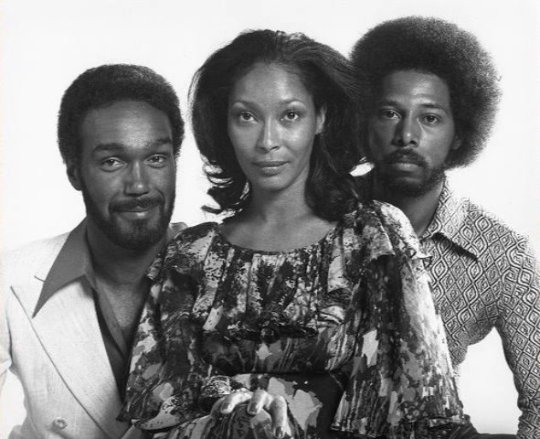

Temple of shock, January 20 2011, Slinking Through the Seventies: An Interview with Marlene Clark, an expanded and revised interview by Chris Poggiali that originally appeared in Fangoria #191 (April 2000)
#marlene clark#ganja & hess#bill gunn#1973#1970s#interview#not caps#film#horror#black horror#african american cinema#external source#tag review#ganja and hess
24 notes
·
View notes
Text
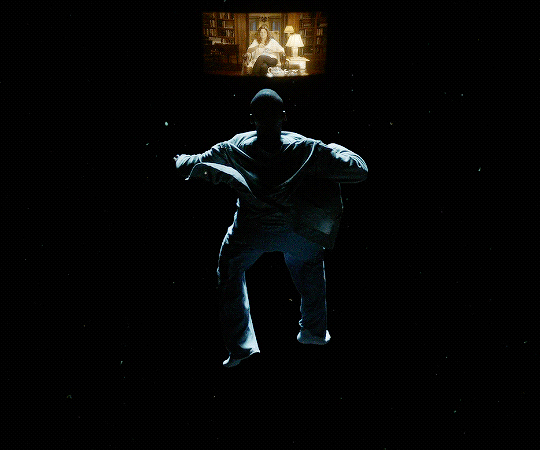
#get out#get out gif#movie#Jordan Peele#Daniel Kaluuya#Chris Washington#movie gif#loop gif#hipnosis#racism#neurosurgeon#abduction#brain surgery#satire#metaphors#african american#photograph#films#cinema#revenge#kidnapping#manipulation#betrayal#racial conflict#paranoia#nightmare#immortality
13 notes
·
View notes
Video
ZAPPO. "Addio Broadway", 1941. by Halloween HJB Via Flickr: Italian film poster of the American movie, "The Great American Broadcast"
#ZAPPO#The Great American Broadcast#vintage movie posters#film#cinema#dancers#dancing#Nicholas Brothers#African-American#costumes#music#John Payne#Cesar Romero#Alice Faye#flickr
0 notes
Text
A British Masterpiece Unveiled: How to Watch 'Nickel Boys' Amidst Awards Season Buzz
The adaptation of Colson Whitehead’s Pulitzer Prize-winning novel, “Nickel Boys,” has taken the film world by storm, earning nominations and stirring conversations across the United Kingdom and beyond. Directed by RaMell Ross, this poignant drama delves into the harrowing experiences of two young African-American teens at a brutal reform school in 1960s Florida. Theatrical Release “Nickel Boys”…
0 notes
Text

#Will smith#black hollywood#black cinema#black americans#black American Cinema#black american culture#african american#Apple TV
1 note
·
View note
Text
Unpacking the Layers: The Societal Reflections in Spike Lee's 'Do the Right Thing'
Few films stand as boldly and poignantly as Spike Lee‘s masterwork, “Do the Right Thing.” Set against the sweltering backdrop of a Brooklyn neighborhood, Lee’s film is not just a narrative; it’s a mirror reflecting the intricate complexities of racial tensions, social injustices, and the simmering undercurrents of African American culture. Released in 1989, “Do the Right Thing” remains as…
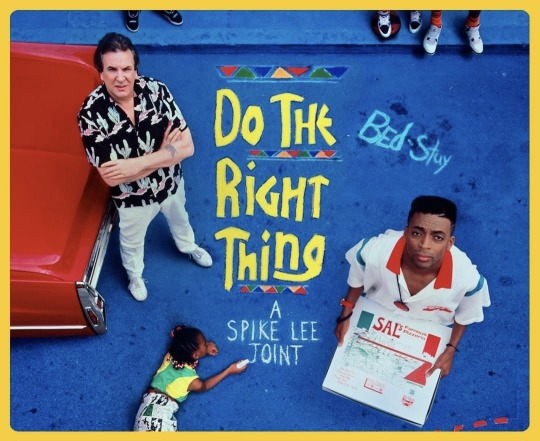
View On WordPress
#African American Culture#Cinema#Do the Right Thing#racial tensions#Social Justice#societal reflections#Spike Lee
0 notes
Text
Dinosaurs in the Hood
Danez Smith
Let’s make a movie called Dinosaurs in the Hood. Jurassic Park meets Friday meets The Pursuit of Happyness. There should be a scene where a little black boy is playing with a toy dinosaur on the bus, then looks out the window & sees the T. Rex, because there has to be a T. Rex.
Don’t let Tarantino direct this. In his version, the boy plays with a gun, the metaphor: black boys toy with their own lives, the foreshadow to his end, the spitting image of his father. Fuck that, the kid has a plastic Brontosaurus or Triceratops & this is his proof of magic or God or Santa. I want a scene
where a cop car gets pooped on by a pterodactyl, a scene where the corner store turns into a battle ground. Don’t let the Wayans brothers in this movie. I don’t want any racist shit about Asian people or overused Latino stereotypes. This movie is about a neighbourhood of royal folks —
children of slaves & immigrants & addicts & exiles — saving their town from real-ass dinosaurs. I don’t want some cheesy yet progressive Hmong sexy hot dude hero with a funny yet strong commanding black girl buddy-cop film. This is not a vehicle for Will Smith & Sofia Vergara. I want grandmas on the front porch taking out raptors
with guns they hid in walls & under mattresses. I want those little spitty, screamy dinosaurs. I want Cicely Tyson to make a speech, maybe two. I want Viola Davis to save the city in the last scene with a black fist afro pick through the last dinosaur’s long, cold-blood neck. But this can’t be a black movie. This can’t be a black movie. This movie can’t be dismissed
because of its cast or its audience. This movie can’t be a metaphor for black people & extinction. This movie can’t be about race. This movie can’t be about black pain or cause black people pain. This movie can’t be about a long history of having a long history with hurt. This movie can’t be about race. Nobody can say nigga in this movie
who can’t say it to my face in public. No chicken jokes in this movie. No bullets in the heroes. & no one kills the black boy. & no one kills the black boy. & no one kills the black boy. Besides, the only reason I want to make this is for that first scene anyway: the little black boy on the bus with a toy dinosaur, his eyes wide & endless
his dreams possible, pulsing, & right there.
0 notes
Photo
Spike Lee

244 notes
·
View notes
Text
masterpost of horror lists
here are all my horror lists in one place to make it easier to find! enjoy!
sub-genres
action horror
analog horror
animal horror
animated horror
anthology horror
aquatic horror
apocalyptic horror
backwoods horror
bubblegum horror
campy horror
cannibal horror
children’s horror
comedy horror
coming-of-age horror
corporate/work place horror
cult horror
dance horror
dark comedy horror
daylight horror
death games
domestic horror
ecological horror
erotic horror
experimental horror
fairytale horror
fantasy horror
folk horror
found footage horror
giallo horror
gothic horror
grief horror
historical horror
holiday horror
home invasion horror
house horror
indie horror
isolation horror
insect horror
lgbtqia+ horror
lovecraftian/cosmic horror
medical horror
meta horror
monster horror
musical horror
mystery horror
mythological horror
neo-monster horror
new french extremity horror
paranormal horror
political horror
psychedelic horror
psychological horror
religious horror
revenge horror
romantic horror
dramatic horror
science fiction horror
slasher
southern gothic horror
sov horror (shot-on-video)
splatter/body horror
survival horror
techno-horror
vampire horror
virus horror
werewolf horror
western horror
witch horror
zombie horror
horror plots/settings
road trip horror
summer camp horror
cave horror
doll horror
cinema horror
cabin horror
clown horror
wilderness horror
asylum horror
small town horror
college horror
plot devices
storm horror
from a child’s perspective
final girl/guy (this is slasher horror trope)
last guy/girl (this is different than final girl/guy)
reality-bending horror
slow burn horror
possession
pregnancy horror
foreign horror or non-american horror
african horror
spanish horror
middle eastern horror
korean horror
japanese horror
british horror
german horror
indian horror
thai horror
irish horror
scottish horror
slavic horror (kinda combined a bunch of countries for this)
chinese horror
french horror
australian horror
canadian horror
decades
silent era
30s horror
40s horror
50s horror
60s horror
70s horror
80s horror
90s horror
2000s horror
2010s horror
2020s horror
companies/services
blumhouse horror
a24 horror
ghosthouse horror
shudder horror
other lists
horror literature to movies
techno-color horror movies
video game to horror movie adaption
video nasties
female directed horror
my 130 favorite horror movies
horror movies critics hated because they’re stupid
horror remakes/sequels that weren’t bad
female villains in horror
horror movies so bad they’re good
non-horror movies that feel like horror movies
directors + their favorite horror movies + directors in the notes
tumblr’s favorite horror movie (based off my poll)
horror movie plot twists
cult classic horror movies
essential underrated horror films
worst horror movie husbands
religious horror that isn’t christianity
black horror movies
extreme horror (maybe use this as an avoid list)
horror shorts
33K notes
·
View notes
Text
Black Women in Media (2019)
The following are statistics on black women's representations in films and television series that came out in 2019.
Here's a link to the full report for more insight on these figures.
Also, see my post on going Beyond Face Value.



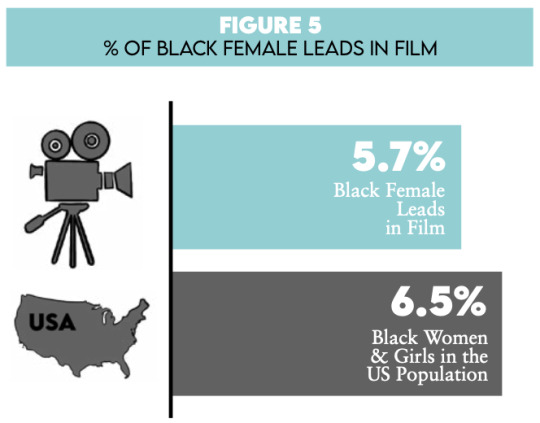

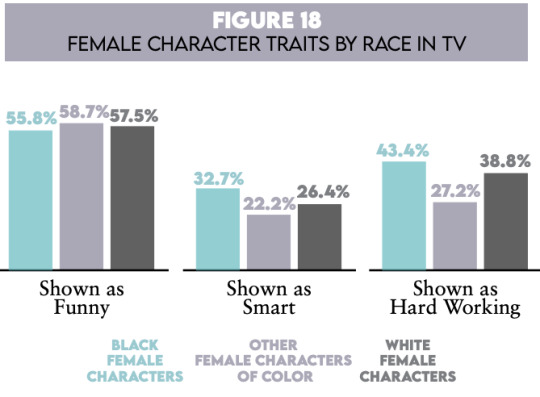


Once again, I encourage taking a look at the full report.
#I honestly encourage reading the full report and making sense of the figures#it’s pretty comprehensive#that said#always be wary of figures#blackontelevision#black tumblr#black sitcoms#black cinema#black media#african american#farfromhome999#Bonus
0 notes
Text
Omg, The Other Black Girl is a must watch to me... It's spooky, surreal and a very dramatic thriller when it needs to be. I love the commentary too!!!
youtube
An African-American editorial assistant works at a white NYC publishing firm. When a black co-worker arrives she gets excited, but is the new girl a friend or a foe?
#the other black girl#hulu#show#tv shows#shows#black shows#black cinema#black culture#black girl magic#surrealism#afrocentric#afrosurrealist#afrosurrealism#drama#thriller#black thriller#african american#african american culture#black tumblr#mystery#horror#comedy#comedy drama#satire#black women#black woman aesthetic#black girl luxury#black girl aesthetic#shows to watch#bantuotaku
0 notes
Text
In the countdown to Halloween, another “festive pin-up” … this time: William Marshall (1924 – 2003), the unforgettable and ultra-suave leading man of Blacula (1972) and its sequel Scream Blacula Scream (1973). This post is also apt considering it is still Black History Month in the UK (it’s every October here) – according to Wikipedia, Marshall was the screen’s first black vampire! Did any actor do more to meld the genres of horror and blaxploitation than Marshall? He also appeared in Abby (1974), the wild low-budget African American version of The Exorcist! And needless to say, I loved Marshall’s portrayal of the King of Cartoons on Pee-wee’s Playhouse.

William Marshall- BLACULA (1972)
#william marshall#blacula#scream blacula scream#abby#pee wee's playhouse#king of cartoons#lobotomy room#halloween#halloween pinup#halloween 2024#happy halloween#retro halloween#vintage halloween#blaxploitation#horror movies#horror classics#exploitation cinema#bad taste#shock value#black history month#black history month 2024#african american#black vampire
44 notes
·
View notes
